Home »
Misc »
How many countries play basketball in the olympics
How many countries play basketball in the olympics
History, top teams and all you need to know
Basketball was invented in the United States of America in 1891. But it didn’t take too long for the sport to become popular. Today, it’s one of the most-watched sports in the world.
Its rise can be traced back to its roots in a gym class in Springfield, Massachusetts, making its way into high school and colleges before evolving into a professional sport it is today. Eventually, it made its way to the sport’s grandest events.
When did basketball start in the Olympics?
Basketball was introduced in the Olympic programme at the 1904 Games in St Louis as a demonstration event. Basketball was first contested as a medal event at the 1936 Olympics. Women’s basketball, meanwhile, made its debut at the Montreal 1976 Games.
3x3 basketball made its Olympic debut at Tokyo 2020.
Who qualifies for Olympic basketball?
A total of 12 teams, each in the men’s and the women’s competition, qualify for the basketball event at the Olympic Games.![]()
While seven teams can gain entry through the FIBA World Cup, four slots are determined through the FIBA Olympic qualifying tournament. The last remaining slot is reserved for the hosts.
Which country has won the most Olympic gold medals in basketball?
The United States of America is the most successful team in the history of Olympics basketball.
The USA Olympic men’s basketball team has won the gold medal a record 16 times, which includes an unbeaten streak from 1936 to 1968.
The USA women’s basketball team, meanwhile, has pocketed the gold medal on nine occasions. This includes an unbeaten run that’s still in place and dates back to Atlanta 1996.
USA dominates Olympic basketball
Having invented the sport in the late 1800s, it was no surprise that the USA dominated basketball once it was included as a medal event at the 1936 Olympics.
With the Young Men’s Christian Association (YMCA) playing a key role in spreading the sport to various nations, as many as 21 teams competed for the top honours at the Berlin 1936 Games.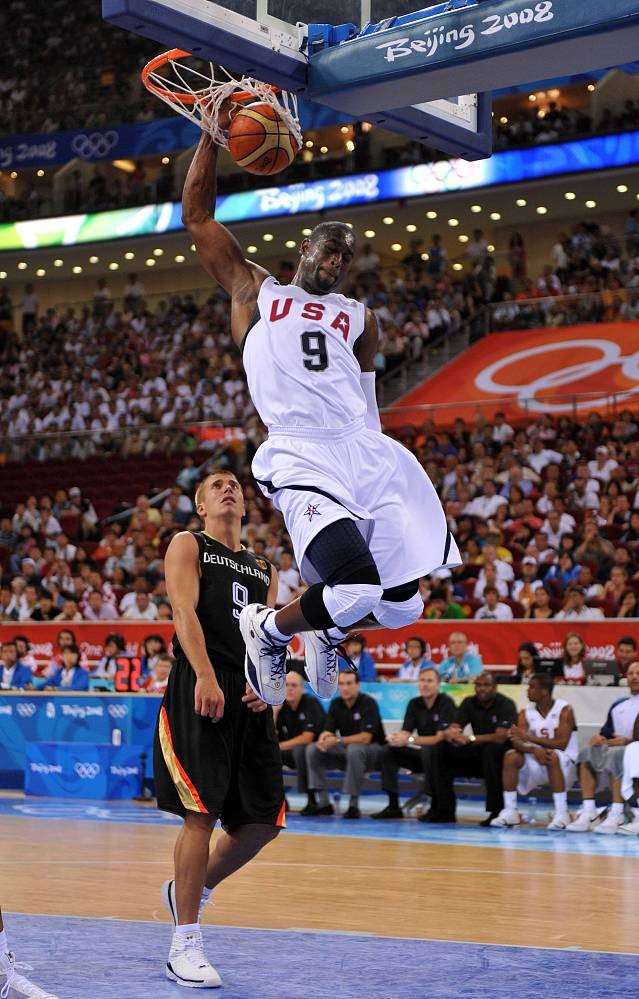
But none could stand in the USA’s way as they romped home to emphatic wins in each of their matches to take home the gold.
The coming years saw the Americans grow stronger as they retained the Olympic title in commanding fashion. With no losses throughout their campaigns, their wins in the gold medal matches were most startling.
The USA basketball team beat France 65-21 in the final of the 1948 Games. The Soviet Union, meanwhile, lost to the Americans in the following four editions -- 1952, 1956, 1960 and 1964 -- with the champions recording dominating wins to retain their crown.
This period also saw the rise of the Soviet Union as a force in the international basketball scene.
The Soviets had made their presence felt at the continental stage by winning the biennial European Basketball Championships 10 times from 1951 to 1971 and the FIBA World Championships in 1972.
And when the 1972 Munich Olympics came around, their sole focus was to capture the only title missing from their cabinet -- an Olympic gold in basketball.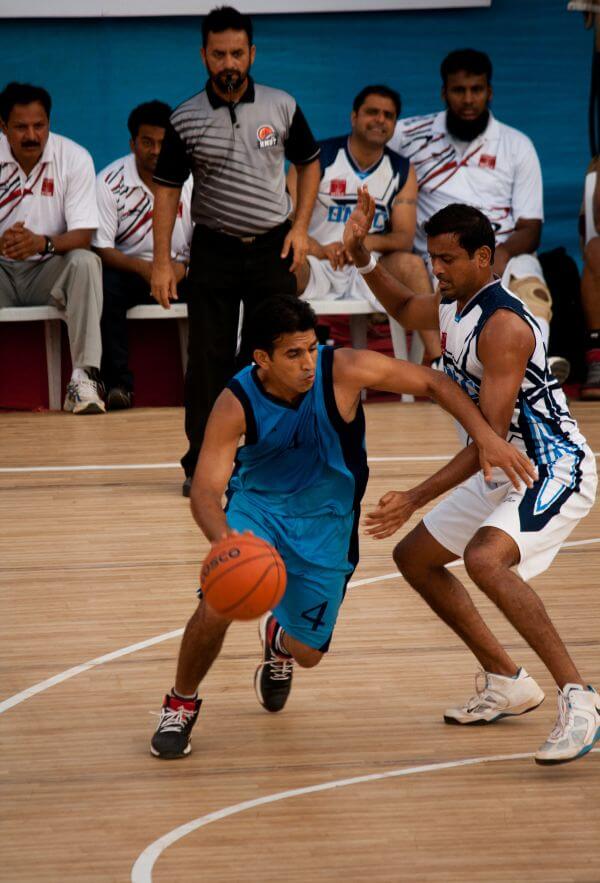
USA gets a shock at Munich Olympics
Coming into the Munich Olympics, the Americans were once again favourites to retain their title. But a look at their build-up suggested otherwise.
They had lost out to the Soviets in the final of the 1970 World University Games and bowed out of the 1971 Pan American Games without a medal.
What really hurt them in this phase was the lack of international experience in the squad. With the Olympic competition being restricted to amateurs, the best hoopsters in America were kept out of the Olympic team -- as they turned pro by joining the NBA -- while the top collegiate talent made up the squad.
Though this worked for the USA in the previous editions, this time the Soviets had found a way to exploit the American limitation by listing their players as soldiers or workers, which allowed them to breach the amateur rules.
This meant while the USA had high school sophomore Doug Collins and the North Carolina State University rookie Tommy Burleson as their best players, the Soviets rode on the brilliance of experienced stars Sergei Belov, Modestas Paulauskas and Alexander Belov.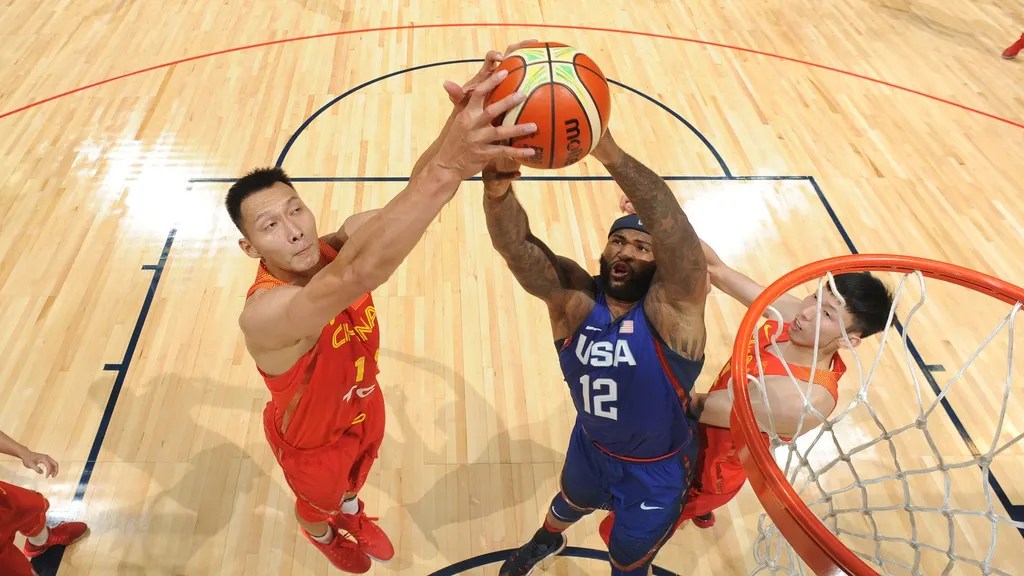
However, it wasn’t until the gold medal game that the lack of experience came to haunt the USA.
Having come into the gold medal match without losing a game, the final was expected to be a close contest. But the Soviets had a different plan.
The USA lost to the Soviet Union in the final of the 1972 Olympics in Munich.
Picture by Getty Images
The Soviet Union basketball team controlled the proceedings with smart ball play, often using the length of the court to stretch the American defence to score points at will. The Soviets scored first and led by the healthy margin of 26-21 at the half.
“We particularly struggled against the Russians because they were adept at controlling the tempo,” Mike Bantom, a member of the ’72 team, now senior vice president for NBA player development, told the New York Times.
While the Americans mounted a comeback in the second period it wasn’t until the final six minutes that they had their opponents in trouble.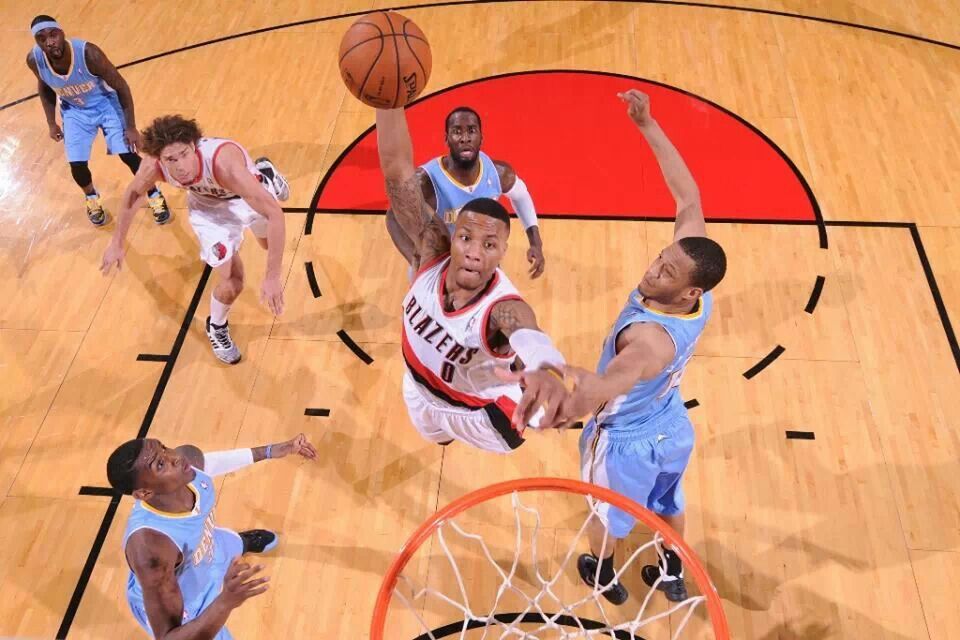
Trailing by eight points, the Americans put pressure and saw the Soviets stumble, helping them reduce the gap to just a point with six seconds left on the clock.
Down to the wire for the gold medal, Doug Collins - the pillar of his team - was not done yet as he made a fine open-court steal and drove towards the paint before being knocked down.
The foul meant the Americans were awarded two free throws to seal the match. While Collins sank them both to put his side ahead, the Soviets called for a time-out.
The game resumed with a second left, and when that went by, the United States players started celebrating. But the drama was not over yet.
Moments later, the FIBA president was seen on court asking for a redo of the final three seconds due to a refereeing error.
This time though, the Soviets ensured that they made the most of the opportunity as Alexander Belov pulled out a buzzer-beater to subject the USA to their first loss at the Olympic stage.
Though the Americans appealed against the final decision, it was turned down as the Soviet Union won their maiden basketball Olympic crown.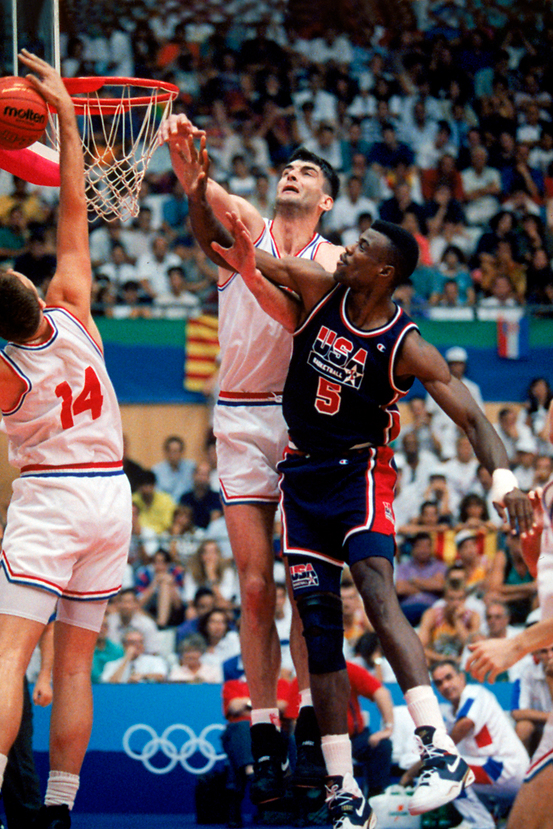
The Dream Team
The coming years also saw a number of countries making the most of the loopholes in the amateur player rule to field top talents at the Olympics.
However, this changed in 1992 after FIBA ruled to include professionals for the Barcelona Olympics.
This allowed the USA to select what was later dubbed as the greatest sports team ever assembled.
The team featured the likes of NBA superstars Michael Jordan, Larry Bird, Magic Johnson, Patrick Ewing, Scottie Pippen and Karl Malone among others.
The Dream Team, coached by Chuck Daly, a two-time NBA champion, had a pre-competition camp in Monaco and then moved into a luxury hotel in Barcelona, where they stayed during the Games.
The Dream Team dominated the Olympic competition, sailing through to win the gold medal. They were the first team to score 100 points in every match at the Games, something that led to their head coach commenting: “It was like Elvis and the Beatles put together.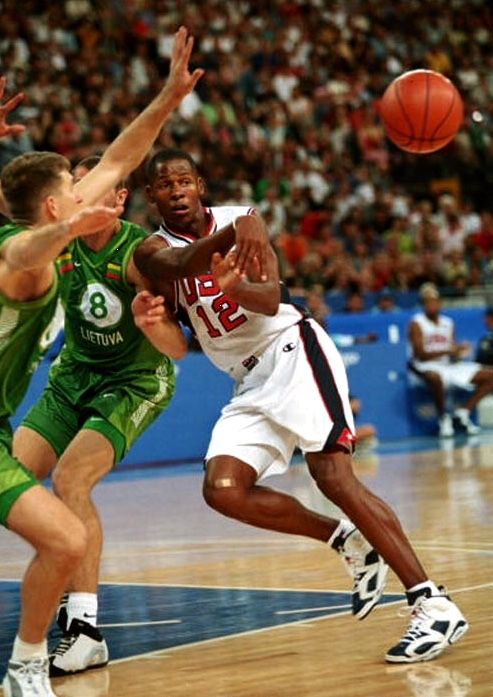 ”
”
However, it’s the legacy that the team left behind that had a lasting impact on the popularity that basketball enjoys today.
Following Barcelona 1992, foreign recruits have been a major draw in the NBA with Yao Ming and Andrea Bargnani being the number one draft picks in (2002) and (2006) respectively. Meanwhile, Dirk Nowitzki and Giannis Antetokounmpo have won the NBA MVP award since.
Olympic basketball winners: Men's
Men's Olympic basketball: All medallists | Olympics | Gold medal | Silver medal | Bronze medal |
|---|
| Berlin 1936 | USA | Canada | Mexico |
| London 1948 | USA | France | Brazil |
| Helsinki 1952 | USA | Soviet Union | Uruguay |
| Melbourne 1956 | USA | Soviet Union | Uruguay |
| Rome 1960 | USA | Soviet Union | Brazil |
| Tokyo 1964 | USA | Soviet Union | Brazil |
| Mexico 1968 | USA | Yugoslavia | Soviet Union |
| Munich 1972 | Soviet Union | USA | Cuba |
| Montreal 1976 | USA | Yugoslavia | Soviet Union |
| Moscow 1980 | Yugoslavia | Italy | Soviet Union |
| Los Angeles 1984 | USA | Spain | Yugoslavia |
| Seoul 1988 | Soviet Union | Yugoslavia | USA |
| Barcelona 1992 | USA | Croatia | Lithuania |
| Atlanta 1996 | USA | Yugoslavia | Lithuania |
| Sydney 2000 | USA | France | Lithuania |
| Athens 2004 | Argentina | Italy | USA |
| Beijing 2008 | USA | Spain | Argentina |
| London 2012 | USA | Spain | Russia |
| Rio 2016 | USA | Serbia | Spain |
| Tokyo 2020 | USA | France | Australia |
Women’s basketball at the Olympics
While the men’s game has enjoyed a storied history under the Olympic banner, women’s basketball has a similarly rich vein of tales to tap into.
The USA is the most successful team in women's Olympic basketball with eight titles.
Making its debut at the 1976 Games in Montreal, women’s basketball has been a constant presence at the Olympics ever since.
The Soviet Union was the first to claim the Olympic title in the women’s category by beating the United States in the final at the 1976 Games. While the Soviets retained their crown at their home Games in 1980, the Americans took the gold medals in the following two Games.
In 1992, a Unified Team consisting of the former Soviet Republics beat China for the title.
The Americans, however, returned to regain their crown at Atlanta 1996 and have won the title at every edition since.
Olympic basketball winners: Women's
Women's Olympic basketball: All medallists | Olympics | Gold medal | Silver medal | Bronze medal |
|---|
| Montreal 1976 | Soviet Union | USA | Bulgaria |
| Moscow 1980 | Soviet Union | Bulgaria | Yugoslavia |
| Los Angeles 1984 | USA | South Korea | China |
| Seoul 1988 | USA | Yugoslavia | Soviet Union |
| Barcelona 1992 | Unified Team | China | USA |
| Atlanta 1996 | USA | Brazil | Australia |
| Sydney 2000 | USA | Australia | Brazil |
| Athens 2004 | USA | Australia | Russia |
| Beijing 2008 | USA | Australia | Russia |
| London 2012 | USA | France | Australia |
| Rio 2016 | USA | Spain | Serbia |
| Tokyo 2020 | USA | Japan | France |
Just the Facts: Olympic Men's Basketball
| OFFICIAL EVENT TITLE: | Games of the XXXII Olympiad |
| OFFICIAL DATES: | July 23-August 8, 2021 |
| OFFICIAL TEAM NAME: | 2021 U.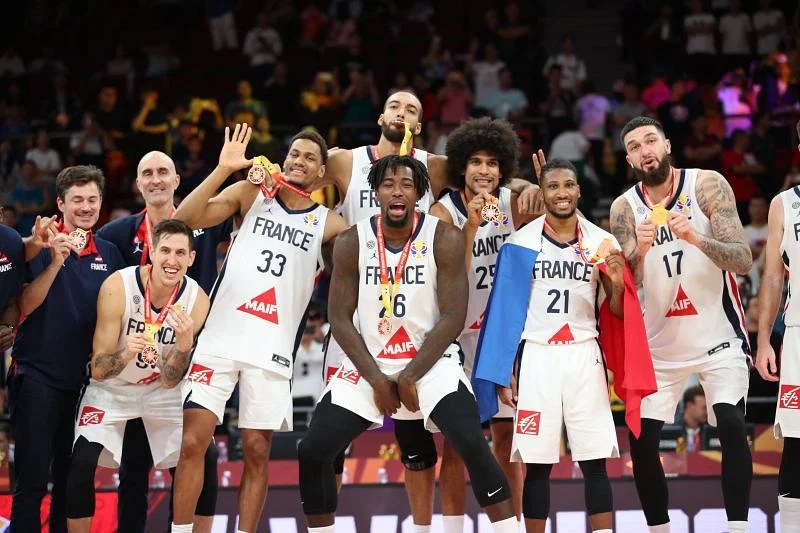 S. Olympic Men’s Basketball Team S. Olympic Men’s Basketball Team |
| EVENT SITE: | Tokyo, Japan |
| EVENT VENUE: | Saitama Super Arena |
| OFFICIAL EVENT INTERNET SITE: | https://www.olympic.org/news/tokyo-2020 |
| MEN'A BASKETBALL
COMPETITION DATES: | July 25-August 7, 2021 Tokyo Olympic Men's Basketball Schedule Group Phase: July 25-August 1; Quarterfinals: August 3; Semifinals: August 5; Gold and Bronze Medal Games: August 7.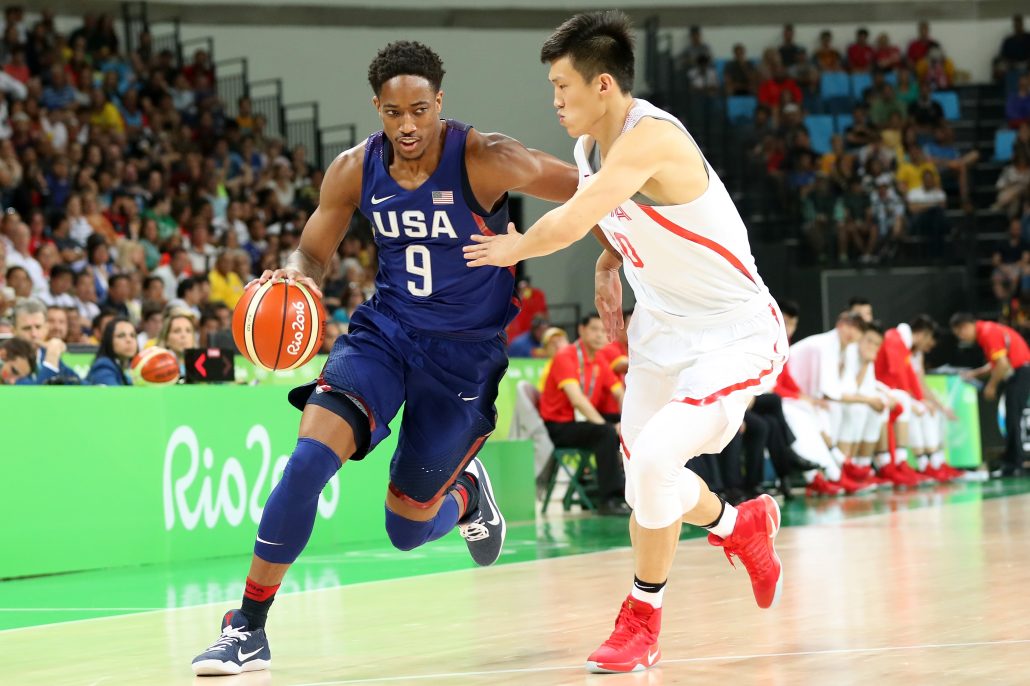 |
| USA BASKETBALL TRAINING CAMP DATES: | July TBA, 2021 |
| USA BASKETBALL TRAINING CAMP SITE: | TBA |
| EVENT DESCRIPTION: | First held in 1936 and conducted every four years since 1948, the rescheduled 2020 Olympic Summer Games will be held July 23-August 8, 2021, in Tokyo, Japan. |
| ELIGIBILITY: | Athletes must be U.S. citizens. |
| USA FINALISTS ROSTER: | 44 Finalists Announced for U.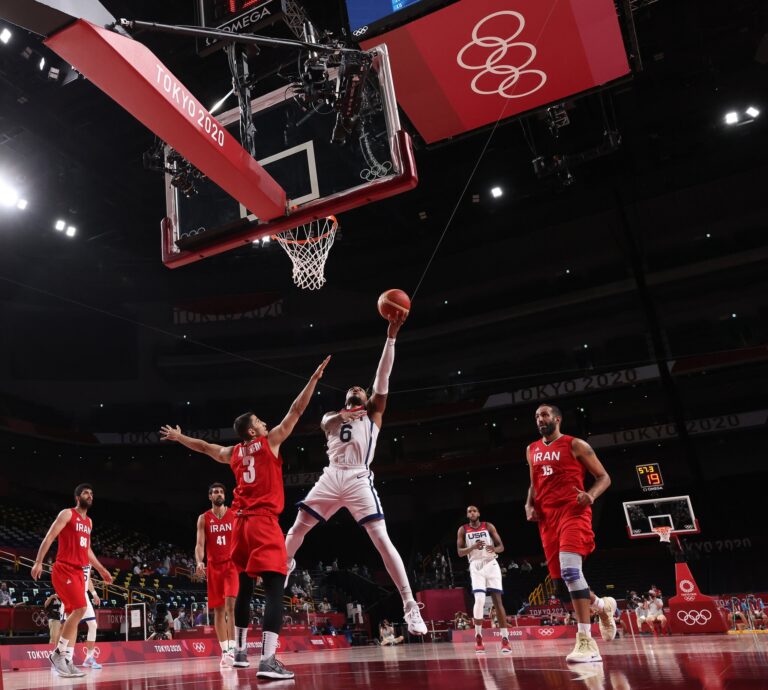 S. Olympic Men’s Team S. Olympic Men’s Team USA Finalists Roster |
| 2021 QUALIFIED TEAMS (12): | In addition to host Japan, nations qualified for the 2021 Tokyo Olympics men's basketball competition include Argentina, Australia, France, Iran, Nigeria, Spain, USA. Four additional teams will qualify through FIBA's Olympic Qualifying Tournaments. The four men's FIBA Olympic Qualifying Tournaments, taking place from June 29-July 4, 2021, will be played in Canada, Croatia, Lithuania and Serbia. The winners of the four tournaments will qualify for the Tokyo 2021 Olympic Games. Click here to view the competition schedule. Belgrade, Serbia Group A - Dominican Republic, New Zealand, Serbia Group B - Puerto Rico, Italy, Senegal Kaunas, Lithuania Group A - Lithuania, Korea, Venezuela Group B - Poland, Slovenia, Angola Split, Croatia Group A - Germany, Russia, Mexico Group B - Tunisia, Croatia, Brazil Victoria, Canada Group A - Greece, China, Canada Group B - Uruguay, Czech Republic, Turkey |
| PRELIMINARY ROUND GROUPS: | FIBA Official Draw: USA Men Drawn Into Group A Note: There will be 12 participating teams.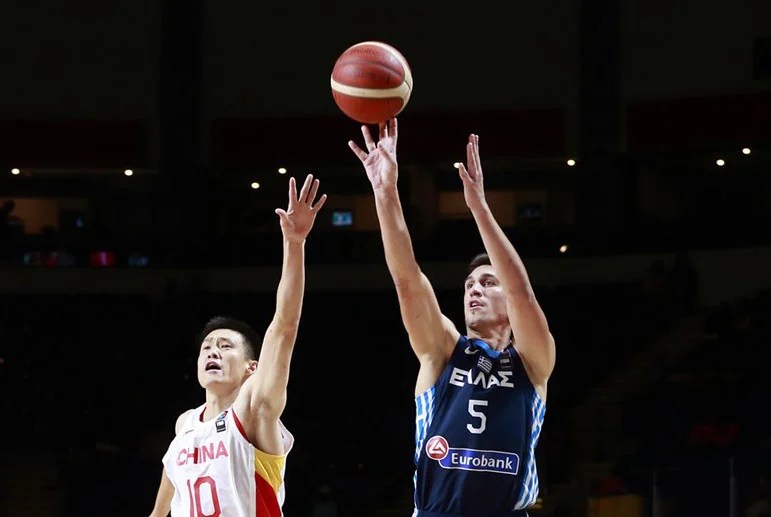 The 12 teams have been divided into three groups (A, B and C) of four teams each. The Group Stage of the competition is played in a round robin format, with each team playing all other teams in its group (a total of 3 games for each team). The teams placed first and second in each group and the 2 best third-placed teams in the Group Phase qualify for the Final Phase. The remaining 4 teams take no further part in the competition. The 12 teams have been divided into three groups (A, B and C) of four teams each. The Group Stage of the competition is played in a round robin format, with each team playing all other teams in its group (a total of 3 games for each team). The teams placed first and second in each group and the 2 best third-placed teams in the Group Phase qualify for the Final Phase. The remaining 4 teams take no further part in the competition. A draw will take place following the conclusion of the Group Phase to determine the pairings of the quarterfinals. The winners of the groups and the second-placed team with the best result from the Group Phase are placed in one pot (D), while the 2 remaining second-placed teams and 2 best third-placed teams in another pot (E). Teams from the same group in the Group Phase cannot be drawn against each other in the quarterfinals. This stage of the competition is played in a knockout format and the draw will produce an Olympic bracket for the road to the gold medal.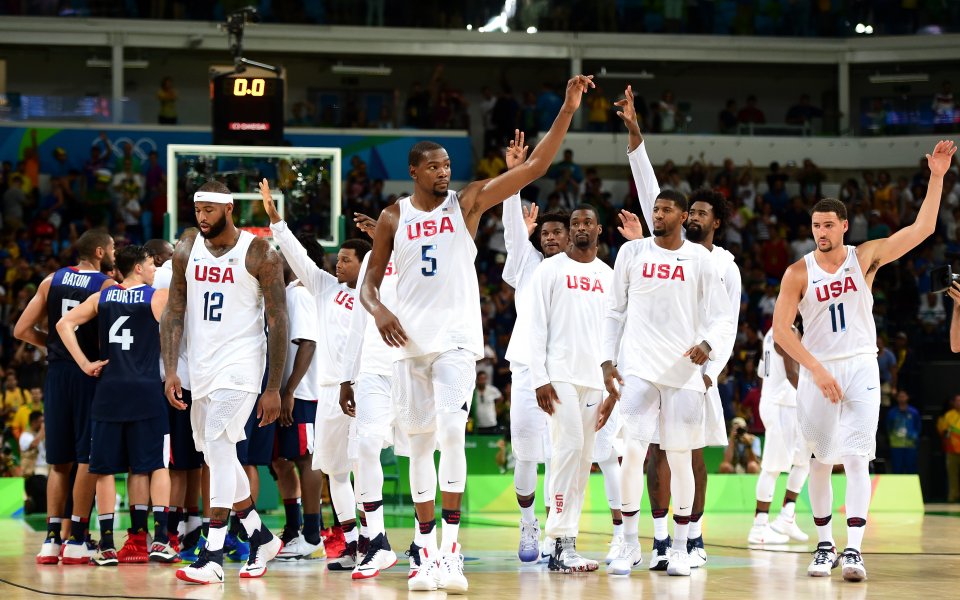 To be crowned Olympic champion, a team has to play six games - three in the Group Phase and three in the Final Phase (quarterfinals, semifinals, gold medal game), instead of eight as in past Olympics. |
| U.S. OLYMPIC HISTORY: | U.S. Olympic men's basketball teams have medaled in each of the 18 Olympics they have participated in, winning 15 gold medals, one silver and two bronze medals. Owning a 138-5 overall win-loss record, the USA in 2021 will look to claim a fourth straight Olympic gold medal. Click here to view USA Olympic History |
| U.S. OLYMPIC TEAM PLAYERS OF NOTE: | Members of past U.S. Olympic men's teams have included standouts such as four-time medalist Carmelo Anthony; three-time medalists LeBron James and David Robinson; two-time gold medalists Charles Barkley; Carlos Boozer; Kobe Bryant; Kevin Durant; Patrick Ewing; Burdette Haldorson; William Hougland; Michael Jordan; Jayson Kidd; Robert Kurland; Karl Malone; Chris Mullin; Chris Paul; Gary Payton; Scottie Pippen; John Stockton; Dwyane Wade; and Deron Williams. All-Time USA Alphabetical Roster All-Time USA Alphabetical Roster
|
| |
2024 | Basketball 3×3: Olympic Qualification Rules
3x3 Basketball made its debut at the Tokyo 2020 Olympic Games - teams of three players competed on a one-ring court to rhythmic music.
Sports fans will now be able to see this exciting spectacle again at the Games in Paris , qualifying for which starts in November 2022. We answer the main questions about qualifying for 3x3 basketball in Paris 2024.
How many basketball players will go to Paris 2024?
The 3x3 Olympic Basketball Tournament will feature a total of 64 athletes, the same number as in Tokyo 2020.
Both men's and women's tournaments will be attended by eight teams of four athletes (three on the field and one substitute).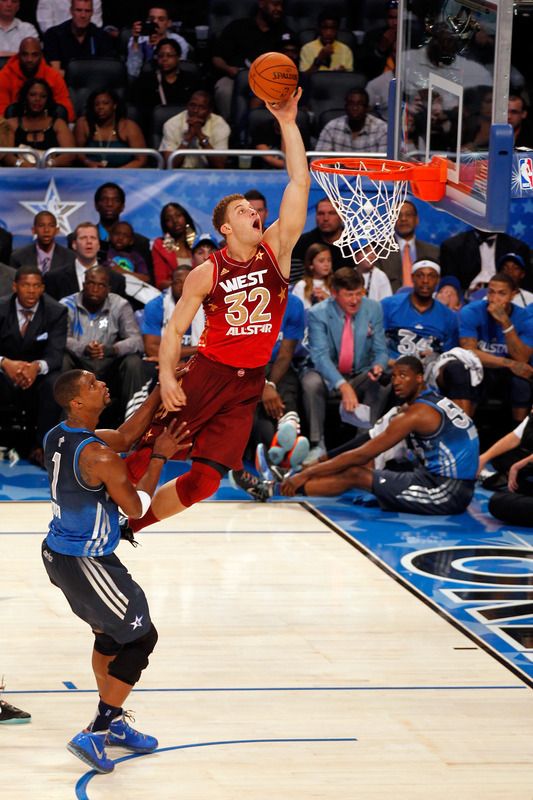
Each National Olympic Committee (NOC) may qualify two teams - one men's and one women's.
What does qualifying for Paris 2024 in 3x3 basketball consist of?
Unlike many other sports in 3x3 basketball, the host country will not automatically receive quotas in both the men's and women's tournaments - there will be only one such quota.
The qualification for the Olympic tournament is divided into four phases.
Phase 1: Ranking published November 1, 2023 at 12:00 UTC -
three quotas for each gender One quota will be transferred to the host country for either the men's or women's team. The International Basketball Federation (FIBA) will give the quota to the French team (men's or women's) that will be ranked higher, even if none of them is in the top three. In case of equality of positions, the quota is transferred to the women's team.
According to the rating , the NOCs of the three men's and three women's teams , which occupy the first three places in the ranking, can receive one quota each.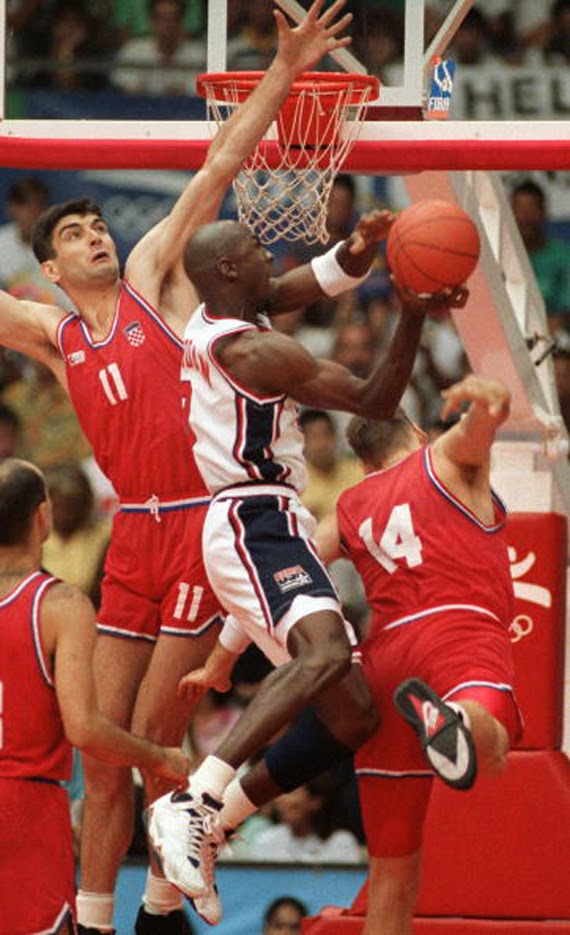 At the same time, if the men's or women's team of the host country that received the quota is outside the top three of the rating, then the remaining two quotas among the teams of this gender are received by the first two teams of the rating, taking into account the rule that no more than two can receive quotas in this phase NOCs from the same continental group (Americas, Europe, Africa, Asia and Oceania).
At the same time, if the men's or women's team of the host country that received the quota is outside the top three of the rating, then the remaining two quotas among the teams of this gender are received by the first two teams of the rating, taking into account the rule that no more than two can receive quotas in this phase NOCs from the same continental group (Americas, Europe, Africa, Asia and Oceania).
The ranking is calculated on the basis of the points earned by representatives of each of the NOCs and is the sum of the individual rankings of the top 25 players of the respective gender.
Points can be earned within 12 months until November 1, 2023. Only the results of the nine best tournaments under the auspices of FIBA for this period are taken into account in the total.
Current FIBA 3x3 Ranking
Phase 2: First FIBA Universal Olympic Qualifier -
two quotas (one for men and one for women).
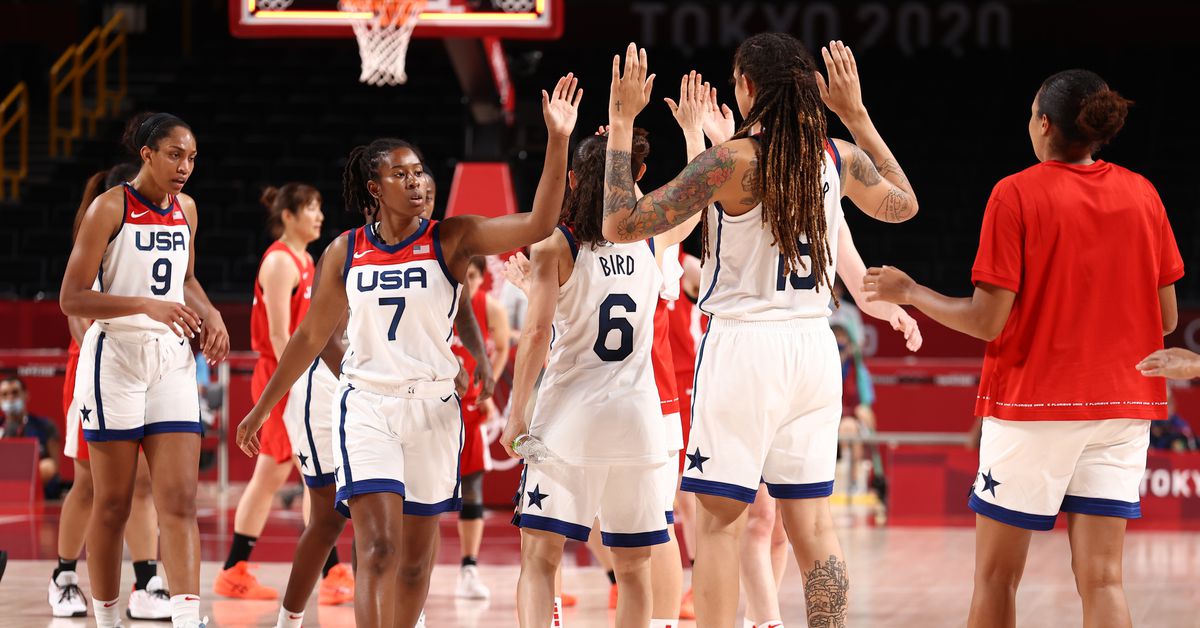
16 teams (8 men's and 8 women's) will compete in the first FIBA Universal Olympic Qualifier 2024. The date and venue of the tournament has yet to be confirmed.
The top ranked men's and women's teams will bring their NOCs a quota.
Participating in the tournament:
- The team of the host country of the tournament, if it has not yet qualified through rating
- Seven (or more if the host team has already qualified) teams from the highest ranked NOCs that have not yet qualified (regardless of gender) at the last two Olympic Games.
Phase 3: 2nd FIBA Universal Olympic Qualifier - two quotas (one for men and one for women) 16 teams (8 men's and 8 women's) will compete in the second FIBA Universal Olympic Qualifier 2024. The date and venue of the tournament has yet to be confirmed.
The top ranked men's and women's teams will bring their NOCs a quota.
Participating in the tournament are:
- Teams representing the highest placed NOCs in continental competitions in 2023 (Asia and Oceania, Americas, Europe, Africa) that have not yet qualified for the Olympic Games.
- Host country team, if not already qualified.
- Team of the host country of the Olympic Games (France), if not already qualified.
- If there are not eight teams per gender within these limits, then the highest-placed teams in the 2023 FIBA 3x3 World Championship that have not yet qualified for the Olympic Games will be invited to the tournament.
Phase 4: FIBA Olympic Qualifier - six quotas (three for men and three for women) 32 teams (16 of each gender) will participate in the FIBA Olympic Qualification Tournament. The date and venue of the tournament has yet to be confirmed.
The top three men's and three women's teams will each receive one quota for their NOCs.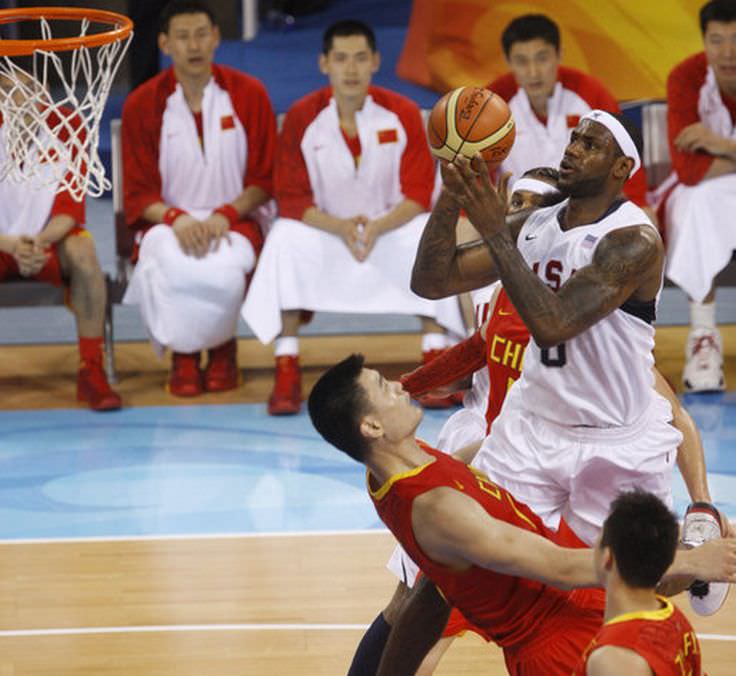
Participating in the tournament:
- Tournament host team and Olympic host team if they have not yet qualified for the Games.
- 14 (or more if the host team of the tournament and/or the host team of the Olympic Games have already qualified) teams representing the highest ranked NOCs that have not yet qualified for the Games.
At least two teams of each gender from the same continental group must be represented at the tournament (maximum ten).
When will the Paris 2024 3x3 basketball competition take place?
3x3 basketball competition will be held from July 30 to August 5 on the Place de la Concorde - in the same place as the skateboarding , breakdance and BMX freestyle tournaments.
Who to watch in Paris 2024?
Team Latvia won the gold medal at Tokyo 2020, beating Team ROC in the final with a score of 21:18. Bronze medals went to the Serbian team with Dušan Domovic-Bulut who beat the Belgian team with a score of 21:14.
Bronze medals went to the Serbian team with Dušan Domovic-Bulut who beat the Belgian team with a score of 21:14.
Women's team competition USA wingmen Stephanie Dolson , got the title of Olympic champion in the match against the ROC team, which ended with a score of 18:15 . Lily Wang teamed up with Team China to win bronze by defeating Team France 16:14.
However, at the 2022 World Cup in Antwerp, none of the Olympic champions could reach the final. In men, the Latvians lost in the quarterfinals to the Serbs, who won the tournament. The second was the Lithuanian team. Tournament MVP became Dejan Majstorović from Serbia with 44 points.
In women, the US Olympic champions also lost to Canada in the quarterfinals. The winner of the tournament was the team of France with MVP Laetitia Guapo, who won in the final of the Canadians.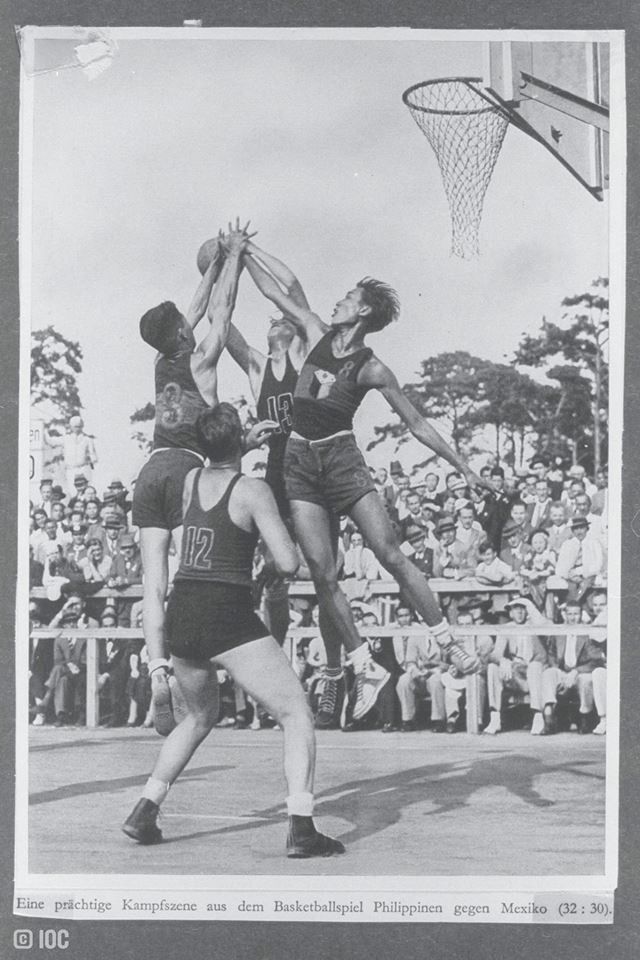
3x3 basketball in Paris 2024. Key Dates
- September 1, 2022: The NOC of the host country notifies FIBA of the use of its quota.
- November 1, 2023: Publication of the FIBA 3x3 ranking.
- Within 15 days after the publication of the rating: FIBA confirms the distribution of quotas to the NOCs in writing.
- Within 30 days of publication of the rankings: NOCs confirm to FIBA the use of allocated quotas.
- Within 15 days of the previous step: FIBA reallocates unused quotas.
- 2024 (exact date to be announced) : First FIBA Olympic Qualifying tournament based on the principle of universality.
- Within five days of the tournament: FIBA confirms the allocation of quotas to the NOCs in writing.
- Within ten days after the tournament: NOCs confirm to FIBA the use of allocated quotas.
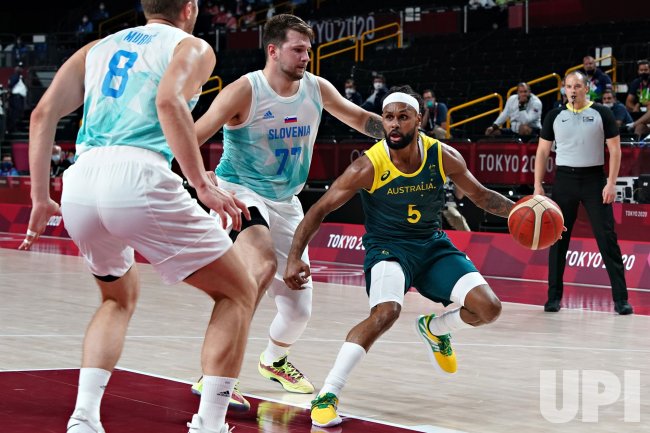
- Within five days of the previous step: FIBA reallocates unused quotas.
- 2024 (exact date to be announced): 2nd FIBA Universal Olympic Qualifier.
- Within five days of the tournament: FIBA confirms the allocation of quotas to the NOCs in writing.
- Within ten days after the tournament: NOCs confirm to FIBA the use of allocated quotas.
- Within five days of the previous step: FIBA reallocates unused quotas.
- 2024 (exact date to be announced): FIBA Olympic Qualifier.
- Within five days of the tournament: FIBA confirms allocation of quotas to the NOCs in writing.
- Within ten days after the tournament: NOCs confirm to FIBA the use of allocated quotas.
- Within five days of the previous step: FIBA reallocates unused quotas.
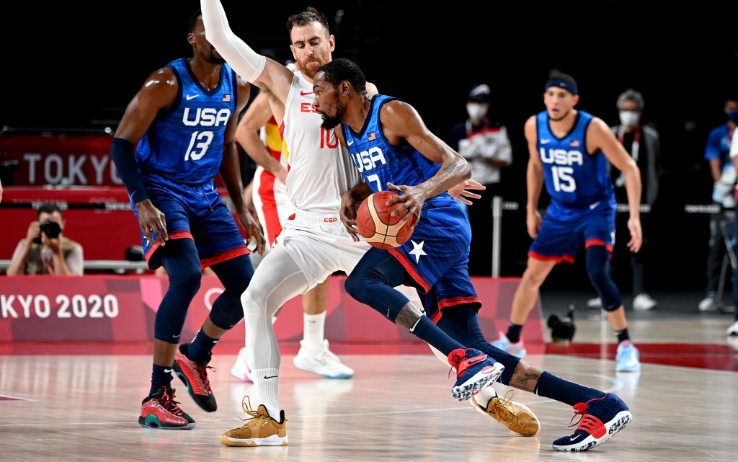
- June 20, 2024: FIBA redistributes all unused quotas.
- July 8, 2024: Game Entry Deadline
- July 26 - August 11, 2024: Paris 2024 Olympic Games
FIBA must decide on the date and venue of the qualifying tournaments no later than January 31, 2024.
📬 Click and subscribe to the Olympics Telegram channel to be the first to know about your favorite athletes and major sporting events. FOLLOW THE OLYMPIAD. STAY UP TO EVERYTHING.
Free live sports broadcasts. Unlimited access to episodes. Unique news and events of Olympiad
Register here Register here
History of world basketball and history of basketball in Russia
replica Swiss watches
Basketball (English basket - basket, ball - ball) is one of the most popular team sports in the world. Basketball is played by two teams, each consisting of five players. The goal of each team is to throw the ball with their hands into the opponent's net ring (basket) and prevent the other team from taking possession of the ball and throwing it into their own basket. The basket is at a height of 3.05 meters (10 feet) from the floor. There are 5 people from each team on the court, in total there are 12 people in the team, substitutions are not limited. For a ball thrown from close and medium distances, 2 points are counted, (because of the three-point line) - 3 points. A free throw is worth one point. The standard size of a basketball court is 28 meters long and 15 meters wide. Basketball is one of the most popular sports in the world.
Basketball is played by two teams, each consisting of five players. The goal of each team is to throw the ball with their hands into the opponent's net ring (basket) and prevent the other team from taking possession of the ball and throwing it into their own basket. The basket is at a height of 3.05 meters (10 feet) from the floor. There are 5 people from each team on the court, in total there are 12 people in the team, substitutions are not limited. For a ball thrown from close and medium distances, 2 points are counted, (because of the three-point line) - 3 points. A free throw is worth one point. The standard size of a basketball court is 28 meters long and 15 meters wide. Basketball is one of the most popular sports in the world.
Basketball around the world
During the winter of 1891, students at the Youth Christian Association College in Springfield, Massachusetts, forced to perform endless gymnastic exercises, considered at that time almost the only means of introducing young people to sports, were very bored in physical education classes. It was necessary to put an end to the monotony of such activities, to introduce a fresh stream into them, which would be able to satisfy the competitive needs of strong and healthy young people.
It was necessary to put an end to the monotony of such activities, to introduce a fresh stream into them, which would be able to satisfy the competitive needs of strong and healthy young people.
College teacher James Naismith found a way out of a seemingly dead-end situation. On December 1, 1891, he tied two peach baskets to the railing of the balcony of the sports hall and, dividing eighteen students into two teams, offered them a game, the meaning of which was to throw more balls into the opponents' basket.
The idea of this game originated in his school years, when children played the old game "duck-on-a-rock" ("Duck on a stone"). The meaning of this game, popular at that time, was as follows: throwing a small stone, it was necessary to hit the top of another stone, larger in size, with it.
Quite pragmatically called "basketball" game only remotely resembled modern basketball. There was no dribbling, the players only threw it to each other, standing still, and then tried to throw it into the basket, and only with both hands from below or from the chest, and after a successful throw, one of the players climbed onto a ladder attached to the wall and removed the ball from the basket . From a modern point of view, the actions of the teams would seem to us sluggish and inhibited, but the goal of Dr. Naismith was to create a team game in which a large number of participants could be involved at the same time, and his invention fully met this task.
From a modern point of view, the actions of the teams would seem to us sluggish and inhibited, but the goal of Dr. Naismith was to create a team game in which a large number of participants could be involved at the same time, and his invention fully met this task.
Very quickly, starting in 1895, basketball from the USA penetrated first to the East - to Japan, China, the Philippines, as well as to Europe and South America.
In 1904, at the Olympic Games in St. Louis (USA), the Americans organized an exhibition tournament between the teams of several cities. Similar demonstration tournaments were held at the 1924 (Paris) and 1928 (Amsterdam) Olympics.
Basketball associations were created in a number of countries, but organizational disunity hindered international contacts and hindered the further development of basketball. June 18 1932 in Geneva, the first international conference of national basketball associations took place. The meeting decided to establish the International Federation of Basketball Associations (FIBA).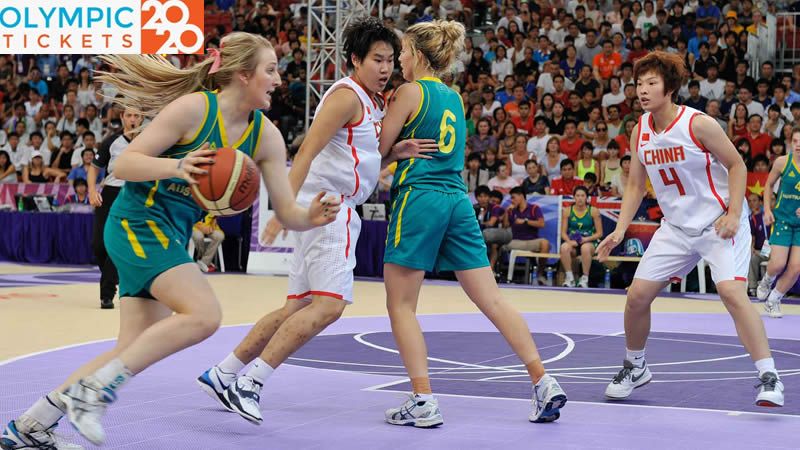 The first international rules of the game were adopted in 1932 at the first FIBA Congress, after which they were repeatedly adjusted and changed, the last significant changes were made in 1998 and 2004.
The first international rules of the game were adopted in 1932 at the first FIBA Congress, after which they were repeatedly adjusted and changed, the last significant changes were made in 1998 and 2004.
In 1935, the International Olympic Committee decided to recognize basketball as an Olympic sport.
Basketball made its Olympic debut at the 11th Olympic Games in Berlin in 1936. Men's teams from 21 countries took part in the tournament. Competitions were held in open areas, all subsequent Olympic tournaments were held indoors. The USA team became the first Olympic champion.
The debut of women's basketball at the Olympic Games took place in 1976 in Montreal. Six teams participated in the tournament. The first Olympic champions were the basketball players of the USSR national team, who became champions twice more. The first European Championship among men was held at 1935 in Geneva. Latvian basketball players won. The first European Women's Championship was held in Rome in 1938, which was won by Italian basketball players.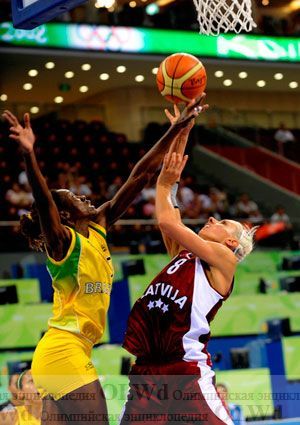
The decision to hold the world championships among men was made at the FIBA congress during the 1948 Olympics. in London. The first World Basketball Championship took place in 1950. in Buenos Aires (Argentina). 10 teams took part in the championship. The first world champion was the team of Argentina, who defeated the 1948 Olympic champion team of the United States.
At the FIBA congress in Helsinki, in 1952 (during the Olympic Games), it was decided to hold the Women's World Championships. The first championship was held in 1953 in Santiago (Chile), and the first champions were American basketball players.
Thus, the game, once invented just for the sake of diversifying physical education lessons for students, has become one of the most popular and popular sports games in the world. With the development of the Game, its rules were changed and supplemented, as well as the equipment and layout of the site (for example, the introduction of a time limit (24 seconds) for an attack by the team of the opponent's basket, or the appearance of a line, for hitting due to which the team is awarded 3 points (1984)).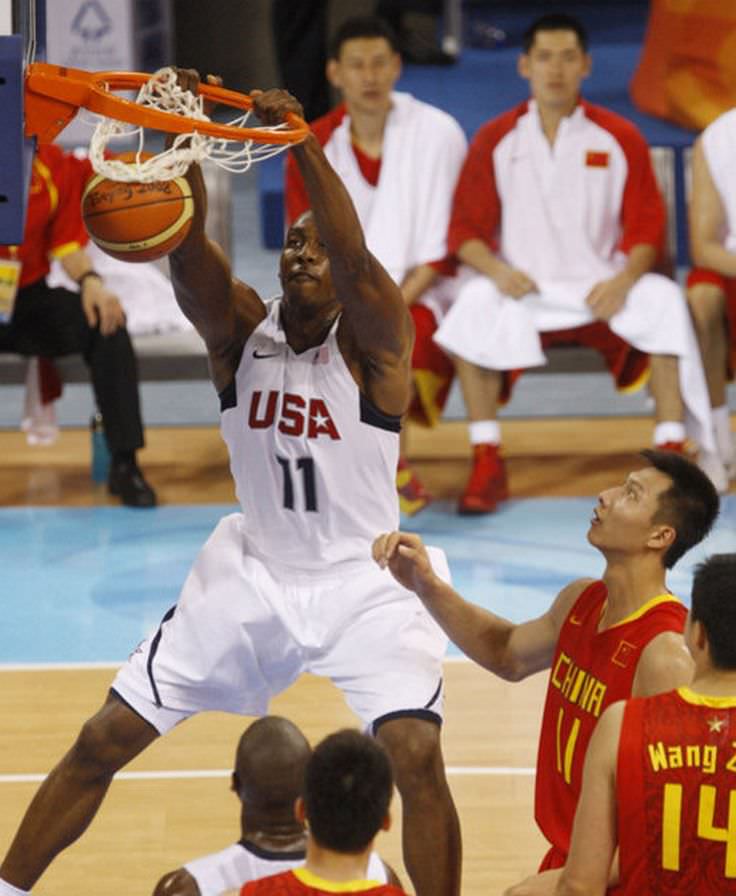
Basketball in Russia
Basketball in Russia was born in 1906. Place of birth - St. Petersburg, sports society "Mayak".
The gymnasts of this society created the first basketball teams, then the teams appeared in the "Bogatyr" society, and some others. But before the October Revolution of 1917. this game was cultivated practically only in the capital of Russia - Petersburg. The new life of basketball in Russia begins in the early twenties. As an independent subject, basketball is introduced first at the Main Military School of Physical Education of Workers, and a little later at the Moscow Institute of Physical Culture.
Graduates of these educational institutions became the first specialists in basketball in our country.
The basketball tournament held in 1923 is considered to be the first championship of the country. at the first All-Union Physical Culture Festival. In the same 1923 appeared in the USSR and the first official rules.
In 1947, the All-Union Basketball Section became a member of the International Basketball Federation.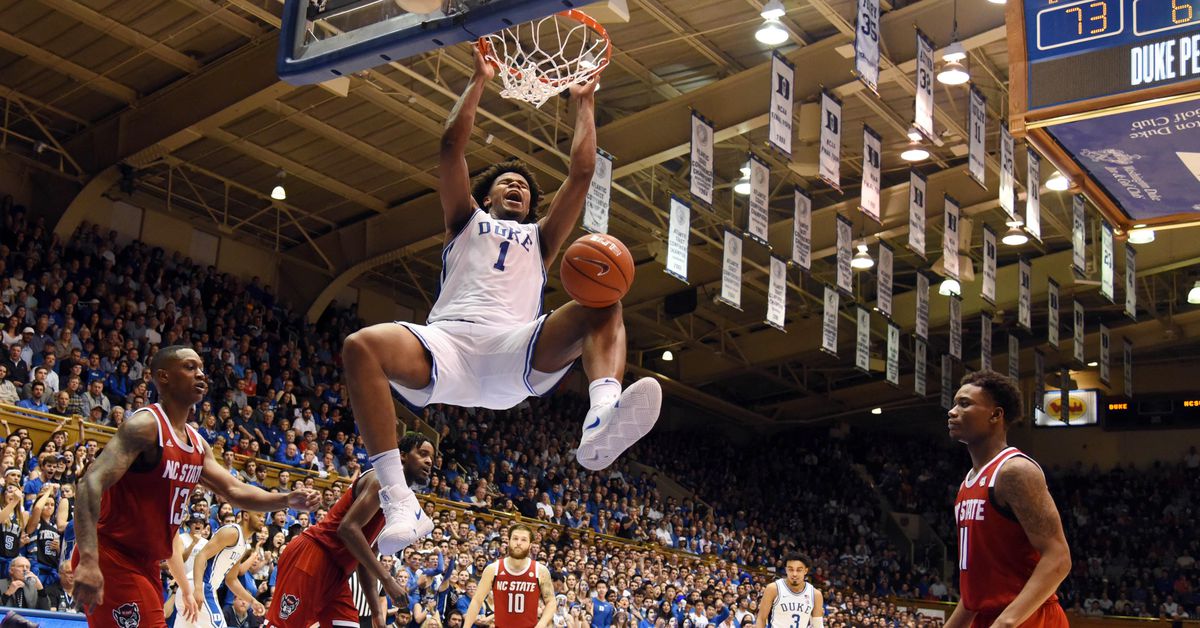 Soviet basketball players received the right to participate in all competitions organized by FIBA. In the same year, the USSR national men's team took part in the European Championship. Our basketball players defeated the teams of Yugoslavia, Hungary, Bulgaria, Egypt, Poland and met in the final with the European champion - the team of Czechoslovakia. Having won with a score of 56:37, the USSR national team won the title of European champion.
Soviet basketball players received the right to participate in all competitions organized by FIBA. In the same year, the USSR national men's team took part in the European Championship. Our basketball players defeated the teams of Yugoslavia, Hungary, Bulgaria, Egypt, Poland and met in the final with the European champion - the team of Czechoslovakia. Having won with a score of 56:37, the USSR national team won the title of European champion.
The USSR men's team was one of the strongest teams in the world during the 1950s, 1960s, 1970s and 1980s.
In total, in the final stages of 39 tournaments (9 Olympiads, 9 World Championships and 21 Europeans) from 1947 to 1990, in which the USSR team took part, only at the very first World Cup in 1959, the Soviet team failed to get into the number winners, and even then only for political reasons, the team was deprived of gold, since despite the fact that the USSR team won all its matches, it refused to play with the Taiwanese team.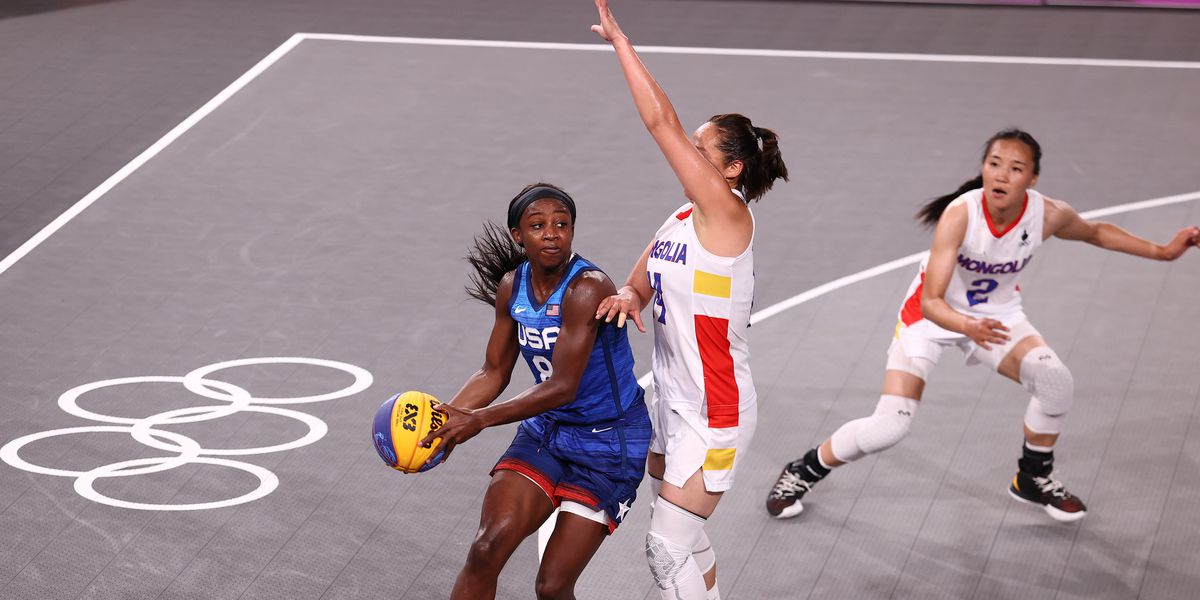 Such a unique achievement has not been conquered by any other basketball team.
Such a unique achievement has not been conquered by any other basketball team.
Here is a complete list of the historical achievements of the USSR men's team:
Olympic champion (2): 1972, 1988.
Olympic silver medalist (4): 1956, 1960, 1964, 1968
Olympic bronze medalist (3): 1968, 1976, 1980
World Champion (3): 1967, 1974, 1982
Vice World Champion (3): 1978, 1986, 1990
European Champion (14): 1947, 1951, 1953, 1957, 1959, 1961, 1963, 1965, 1967, 1969, 1971, 1979, 1981, 1985 (From 1957 to 1971, the USSR national team won 8 European Championships in a row).
The performance of the USSR women's team on the international arena looks no less impressive:
The USSR national team - 21 times became the champion of Europe (1950-1956, 1960-1991)
6 times the USSR national team held the title of World Champion (19649, , 1967, 1971, 1975 and 1983) and twice became the bronze medalist (1957 and 1986)
Three times the team became the Champion of the Olympic Games (1976, 1980, 1992 (under the flag of the united team)), in 1988 the USSR women's team became the bronze medalist of the Seoul Olympics.